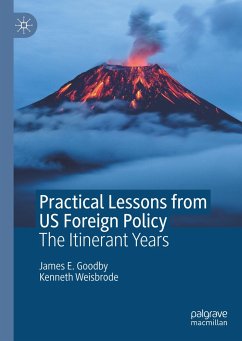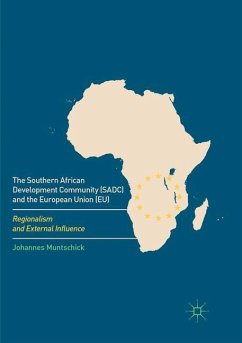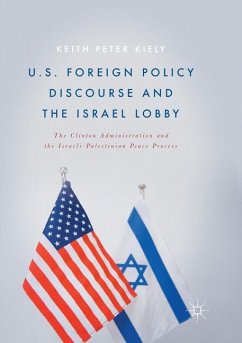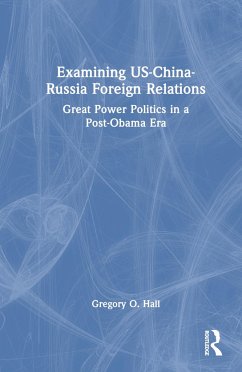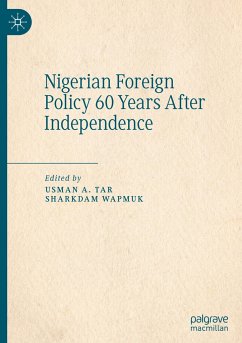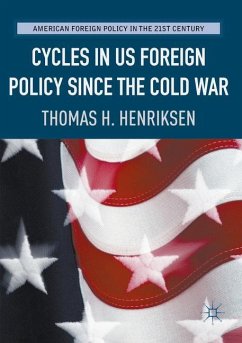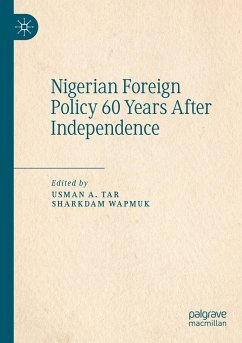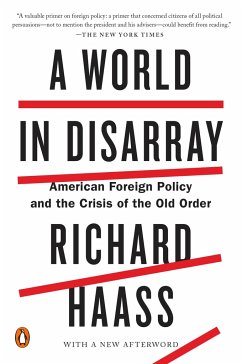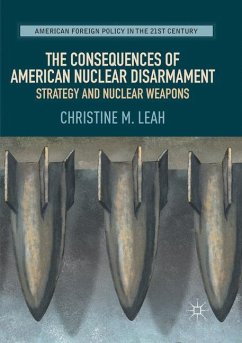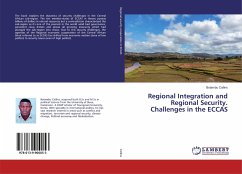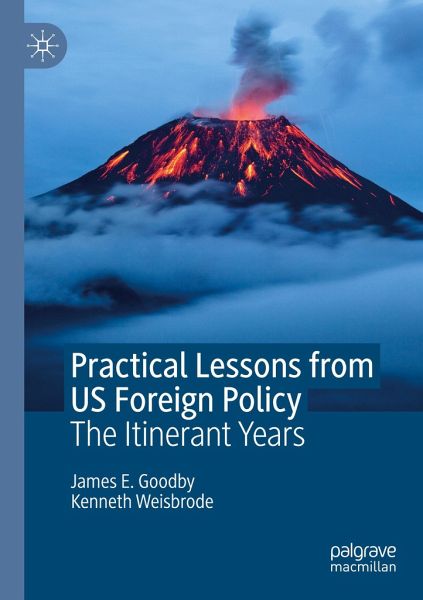
Practical Lessons from US Foreign Policy
The Itinerant Years
Versandkostenfrei!
Versandfertig in 6-10 Tagen
57,99 €
inkl. MwSt.
Weitere Ausgaben:

PAYBACK Punkte
29 °P sammeln!
In foreign policy, the Trump administration has appeared to depart from long-standing norms of international behavior that have underwritten American primacy for decades in a more interdependent and prosperous world. In this book, a diplomat and a historian revisit that perception by examining and reproducing several of their own essays during the past twenty years. The essays reveal that Trump's style exaggerates tendencies towards unilateralism already present in the actions, if not the policies, of previous presidents, and in their neglect of three imperatives: collective security, regional...
In foreign policy, the Trump administration has appeared to depart from long-standing norms of international behavior that have underwritten American primacy for decades in a more interdependent and prosperous world. In this book, a diplomat and a historian revisit that perception by examining and reproducing several of their own essays during the past twenty years. The essays reveal that Trump's style exaggerates tendencies towards unilateralism already present in the actions, if not the policies, of previous presidents, and in their neglect of three imperatives: collective security, regional integration, and diplomatic imagination. It is not too late, however, to remedy the problem by learning the lessons of the recent past.



